What happened at this conference in the name of entertainment is outrageous, demeaning and reeks of blind white privilege. Unfortunately, some white people never seem to understand that racism is not entertainment. Racism is not Art. Racism is not something you intellectualised or play devil’s advocate with. Re-enacting a slave auction is certainly not something you entertain your mostly white audience with. The oppression of my ancestors is not your entertainment. When I read what happened at this conference in this article, I could not help but fume with anger, and to think there were people defending such appalling behaviour on twitter. You need to read the article to understand why the anger.
A quote from the article that resonates with me –
Slavery is considered an egregious human rights violation, alongside torture. The prohibition of both constitute the only two absolute, fundamental human rights which can never be justified or derogated from. Both can amount to crimes against humanity. This is for a reason. The gravity, horror and the harm of slavery, and its continued legacy, is important to understand–not intellectualised, minimised, sanitised, denied or dismissed as ‘that was in the past’ or ‘nothing to do with us’. The oppressive weight of Whiteness lives on, and its manifestations in individual, institutional, overt and covert, indirect racism are all around us, in us and in our practices. Racism and complicity in racism are always wrong. Racism is brutal. Racism is always an assault. Never entertainment.
It is also sad that most white people who consider themselves as not racist or ‘woke’ just sometimes get it so wrong. Also, it is important to bear in mind that fighting racism is not the sole responsibility of people of colour.
This reaction below was the response of a rather well-meaning white friend when I posted this article on my Facebook page
This is not the time for decorum anymore. Instead of walking out and issuing a statement the next day, why on earth didn’t those who object not stop the auction, physically, and denounce the audience for its passive acceptance of such an outrage? I’m fed up with objecting from the side-lines. If necessary, trash the place by throwing the chairs around. Get in their faces and dominate. It works.
While I was finding the right words to respond to such short-sighted statement from an online friend, another friend chimed in with her well thought out response.
I imagine that people walked out because they felt vulnerable and traumatised. I imagine that a direct response such as the one you describe did not feel available precisely because of the power dynamics and context described in the article. It would have been an option for the members of the majority white audience to take that action. Apparently they chose not to, or didn’t see the need. As white people, it’s on us to challenge racism because we have the privilege to do that. To leave it to those being oppressed to challenge that oppression by themselves is profoundly unfair because they are already vulnerable and traumatised. That’s my understanding anyway.
His response-
I see it in a somewhat different way. Sure some people will feel vulnerable and just want to get out of there. That’s understandable. However if you want to change things then you have to have the courage to challenge other people there and then, that reaction gives leadership so that other people will join you. This particular event is typical of what happens daily in many different forms. It must be met with immediate response and a readiness to escalate. It is not easy to do and often the moment is missed, but is has to be done.
Though to tell the truth, more often than not in the past, to my shame I haven’t reacted quickly enough in the moment. Sometimes it somebody totally unexpected who speaks up and demands solidarity from us all. Thank goodness for them. I suppose we have all experienced that.
When I finally found the words to respond, I wrote-
This is a white privileged view of the situation and very similar to blaming the victim rather than addressing the behaviour of the oppressor,.
You have focused on the reaction of the victim. Very tantamount to asking a rape victim…”but why didn’t you fight back or attack your rapist?”
What you have done here is blame the oppressed for the continued action of the oppressor and for not reacting the way you as a privileged white man would have preferred them to react to their oppression.
What’s wrong with this was actually highlighted in the article. You have failed to take into consideration factors such as shock, power dynamics, class and race privilege and the minority factor amongst other things.
Black people at that conference were in the minority as mentioned in the article, and the article mentioned that in that particular profession, that is the norm, which also translates to, the black people at that conference could probably only attend because they got a sponsorship or part sponsorship so as to not make the conference appear all white. I have seen this in action, I have been a beneficiary of such superficial equality action for conference organisers to look good and to tick the equality monitoring form.
Most probably the black participants were junior colleagues hoping to use such conference to network and climb up the ladder. They do not have the power luxury to start throwing a tantrum and chairs around or grab the microphone to disrupt the event to protest a play that offended them.Walking out itself was a protest tool they felt comfortable using and I applaud them for taking a stand. They also forfeited their rest hour to come together to draft a response and insisted it was read at the conference the next day.
However, did they get support for the statement from the white audience? Nope. They were met with silence. A loud silence of white privilege who wondered why the black people could be offended by something so entertaining. To them the black people there had no sense of humour, no wonder their ancestors were enslaved.
Look , there was a time when if I was at such a conference I would have jumped on stage and disrupted that event, but that was a younger me. Would this me that is a civil servant do such a thing now? I doubt so. I would walk out, I would silently protest outside if possible, I would draft a statement and insist it be read, same thing they already did. However, I know I wouldn’t jumped on stage to stop the play. Power dynamics, civil service code of conduct, immigrant status, race factor which definitely has and would affect my getting another job or a promotion and the need to pay my Bills are factors that would deter me from reacting in the way you as a white man suggested.
Instead of being angry that the black people did not react aggressively to stop this racism that continue to happen, why not direct that anger to the people that keep doing this act of racism and the white audience who enjoy such and the white audience who maintain a grave silence in the face of such outrageous racism.
In other words, don’t tell people to fight their rapist, tell rapists to stop raping. Tell racists to stop being racists and don’t blame black people for not fighting back the way you as a white man would want them to. Finally, remember fighting and stopping racism is definitely not just the responsibility of the oppressed, it is a collective responsibility and white people needs to take a huge part of the responsibility.
From his response below, it is good to know that he has at least had a rethink
Thanks Yemisi Ilesanmi and****** for your your well considered replies. Yes I am speaking from white privelege. It is a different power dynamic. It means that I can fire back at those who offend me and if necessary go down with all guns blazing. That is a freedom I assume, wrongly as you point out, that every citizen has – no matter their race, gender or sexuality. At any rate that is the ideal, even if doesn’t exist in practice. The accusation of blaming the victims for their non-aggressive reaction rather than focusing on the oppressors – stings – and I shall remember my mistake; though I suspect I shall probably repeat it when I next try to wave the flag for more militant, break-the-limits-of-convention type of action that I am in favour of. In the last few years I have increasingly lost patience for a safe/tolerant/polite approach with my opponents. The Amazon burns, Brexit disaster looms, Trump is doing his stuff, the Tories are about to be re-elected, Racism is so much more overt, Religion is even more unbearable, Fascism manoeuvres into the mainstream and we have only a handful of years left to stop runaway climate change. We are losing, not winning. Whether I have a privileged position or not, my attitude is to slap back. The only real question is how best to carry the majority of the people with us. And in that respect my non-too-subtle approach may be counter-productive. I suspect you both have your own ideas on how, but how does it chime with the times?
It’s good to know that at least they got part of what I was getting at. However, it reiterates the saying-He who wears the shoes knows where it pinches most.
No matter how much white people think they get racism they cannot really feel the tragic impact as Black people who know and understand their history do. Even when I organise equality events , now neatly and ‘conveniently called inclusion events, with white people, I am so conscious of how they only want to speak about the ‘feel good’ part of inclusion which comes with phrases such as “We are all one”, “We all bleed same blood”, “let’s all just get over things and just get along”. However, they get very uncomfortable when words such as white privilege, class differences, race power dynamics are mentioned. Surface equality is not enough to dismantle the power structure of racism. People with the power must learn to speak out against racism and call it out, Afterall their white voices still hold more power that the people affected by racism.
All I ask is that, beware of your white privilege and use your voice when most needed to condemn racism.

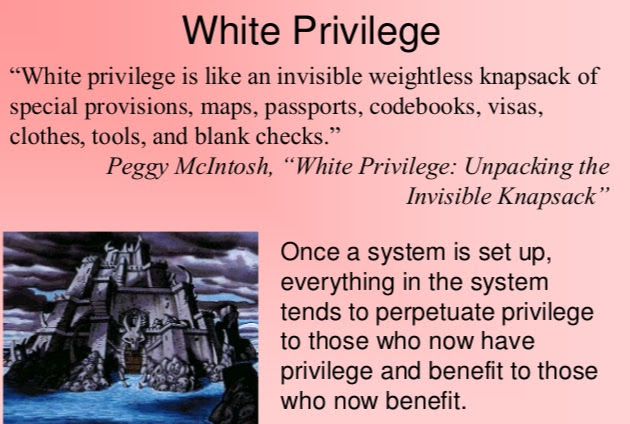
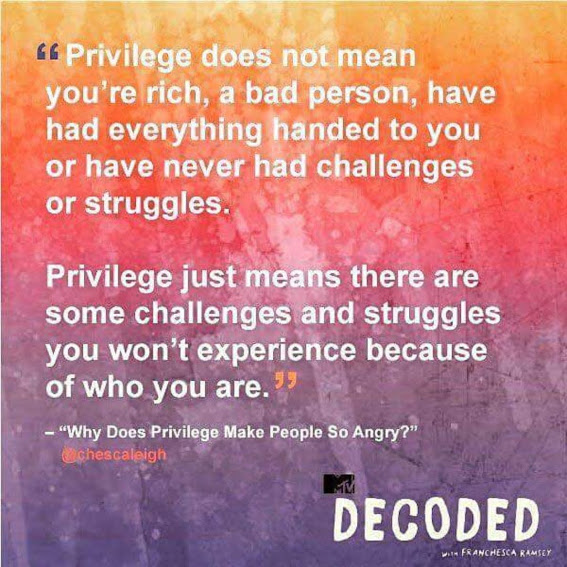
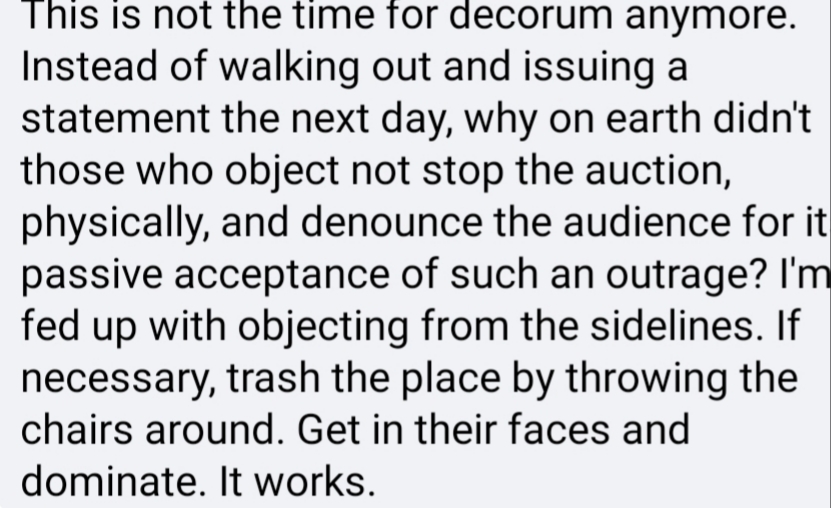
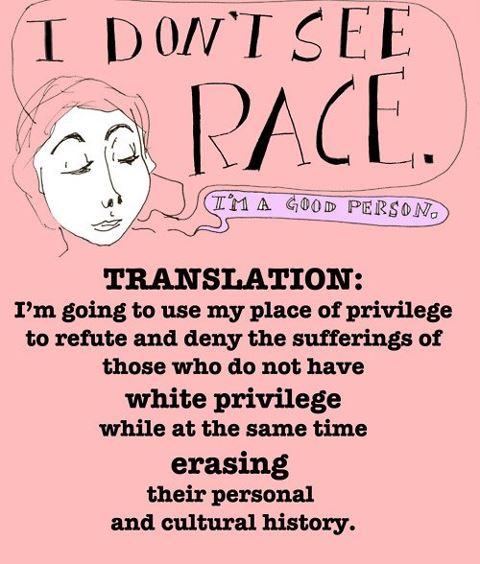
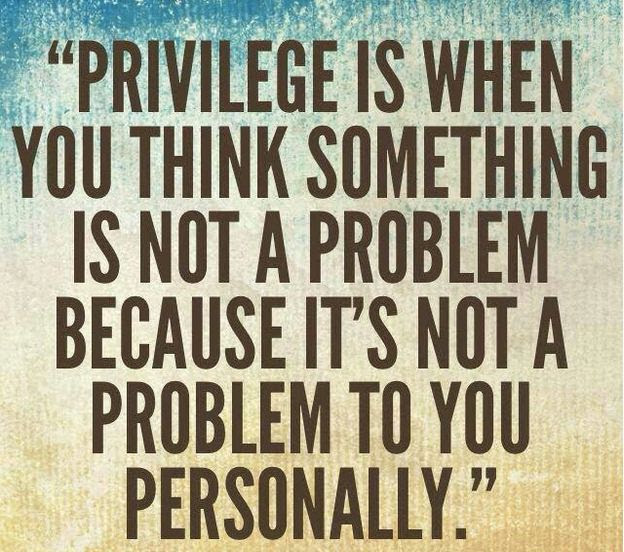

I grew up as an Anglo, and the only way I knew what my Mexican American mom was going through was by listening to her. My very presence changed how people acted around me.
And yet supposedly we’ve solved institutional racism.